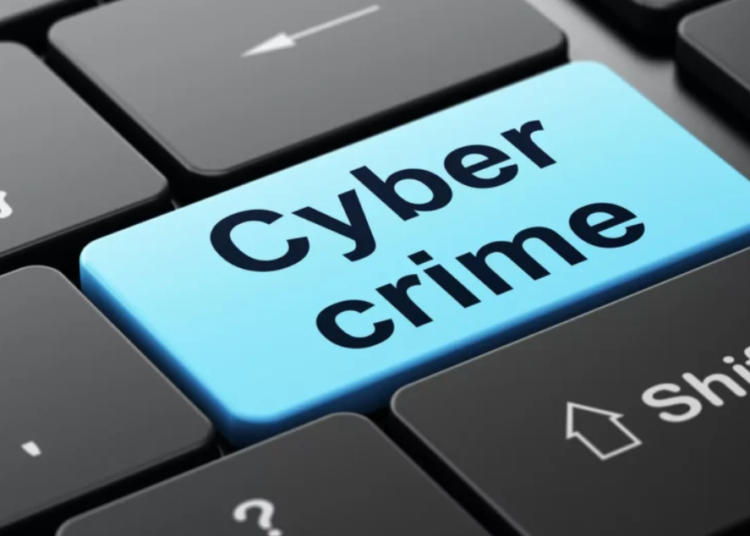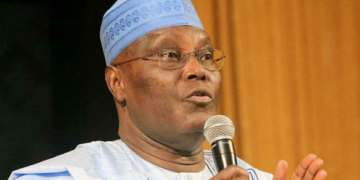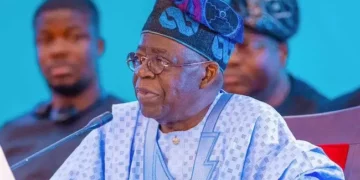The heads of mission of five countries in Nigeria have expressed worries over the delay in amending the Nigerian Cybercrimes Act 2015, stressing that the Act, in its current state, can be misused to suppress free speech, violate citizens’ fundamental rights, and undermine the country’s democracy.
In a joint statement to celebrate the June 12 Democracy day in Nigeria on Thursday entitled “Preventing Misuse of the Cybercrimes Act: Protecting Free Speech and Unlocking Economic Growth,’’ the United States Ambassador to Nigeria, Richard M. Mills, Jr.; The British High Commissioner to Nigeria, Richard Montgomery; the Ambassador of Finland to Nigeria, Sanna Selin; the Ambassador of Norway to Nigeria, Swein Baera and the Canadian High Commissioner to Nigeria Pasquale Salvaggio, called for urgent reform of the Act.
The envoys noted that healthy democracies are formed by many essential ingredients, as enshrined in the Nigerian constitution, which has long been a core value of Nigeria’s democracy. The aim is to protect citizens’ rights and foster a society where people can debate and discuss ideas free from government control.
Though the envoys acknowledged the laudable aims of the current Act to combat online fraud and cyberattacks, they raised the alarm about growing evidence that some are misusing the Act to silence criticism and dissent.
The mission heads cited Nigeria’s National Human Rights Commission (NHRC) advisory opinion on freedom of expression, which warned that it “has potential for abuse, particularly concerning arrests and prosecutions of activists, journalists, bloggers, and ordinary social media users.”
“In addition, in 2022, the ECOWAS Court of Justice ruled that the Act does not conform to the country’s obligations related to freedom of expression under the African Charter on Human and Peoples’ Rights and the International Covenant on Civil and Political Rights.
“Misuse of the Cybercrimes Act undermines democratic advancement and civic participation. It also jeopardises investors’ confidence and risks deterring the innovation needed for economic growth,” the statement said.
The envoys raised the disturbing case of activist Dele Farotimi, who was charged with 12 counts of cybercrime after he reported alleged corruption in the judiciary in a book and on a podcast.
“Farotimi was allegedly detained in Lagos, transported across state lines to Ekiti, and brought to court in handcuffs. Though the charges were eventually withdrawn, his ordeal highlights a troubling issue – the Cybercrimes Act, originally intended to combat online fraud and cyberterrorism, can be misused as a tool to stifle free expression and undermine democratic engagement.
“Farotimi is not alone. Journalists, activists, and ordinary citizens have faced similar charges for sharing opinions or reporting on alleged corruption. This distortion of the law’s original intent can lead to citizens becoming hesitant to speak out, weakening democratic accountability and potentially fuelling distrust in government,” the statement said.
The heads of mission noted that although the Nigeria Communications Commission (NCC) estimated that the country loses $500 million per year to cybercrime, which requires response, Cybercrimes Act’s broad language, especially its vague definitions of “false information,” “cyberstalking,” “harassment,” and “insult” leaves room for confusion and potential abuse.
“The law’s broad scope allows it to be misused against Nigerian citizens seeking to express dissent, form opinions, or criticize powerful people. NHRC has called on law enforcement to “exercise caution” in interpreting the Act’s frequently used Section 24 to ensure that charges reflect an actual threat to public order.
“We therefore welcome the commitment from Nigeria’s Minister of Information and National Orientation, Mohammed Idris, to collaborate with the National Assembly and relevant stakeholders in reviewing the Cybercrimes Act so that it protects the values enshrined in Nigeria’s constitution,” the statement added.
The envoys also warned that the implications extend beyond free expression, stressing that since Nigeria’s economic future depends on its ability to innovate and attract investment in the digital age, the Cybercrimes Act’s misapplication, even in a small number of cases, risks detracting the innovators and entrepreneurs the government wants to invest in Nigeria.
“The Cybercrimes Act also contributes to uncertainty about Nigeria’s legal landscape abroad. Its vague provisions make it difficult for businesses and investors to assess legal risks, hindering investment in industries that rely on digital content. Reform is needed to protect both citizens’ rights and Nigeria’s future,” the statement said.
The undersigned heads of mission, therefore, encouraged Nigerian lawmakers to consider reforming the Cybercrimes Act to narrow the definitions of key terms such as “false information,” “cyberstalking,” “insult,” hatred,” and “harassment” and ensure those definitions cannot be misused to silence critics and censor expression.
“As friends of Nigeria who share the country’s strong commitment to democratic values, we want Nigeria to realise its potential as a democratic digital powerhouse. We would therefore welcome the Nigerian government amending the Act to strike a balance between protecting citizens while preserving human rights, including free expression. This will be a difficult balance to strike, but it is vital for delivering what Nigeria wants: a stable and open democracy and economic growth underpinned by investment.
“Nigeria is not alone in facing this problem. Democracies worldwide are grappling with the ever-evolving challenges and opportunities the digital world presents. Through the Council of Europe’s Global Action on Cybercrime project, Nigerian lawmakers are receiving funding and technical assistance to help the current review of the Act lead to legislation that meets international standards and best practices. However, the Act’s review deadline has consistently been delayed, and we urge Nigerian lawmakers to prioritise this review and ensure it is open to public consultation and debate.
“Free expression is a precious commodity that relies on all of us to respect it. It is a fundamental tenet of Nigeria’s constitution. Nigerians, and any citizens of countries around the world, should be able to hold and express their views, even if those opinions are unpopular,” the statement added.





